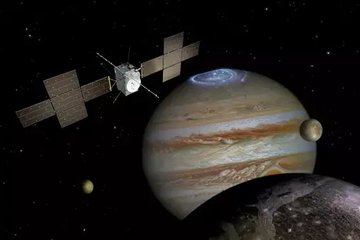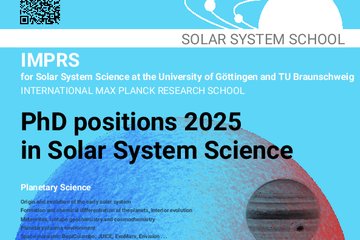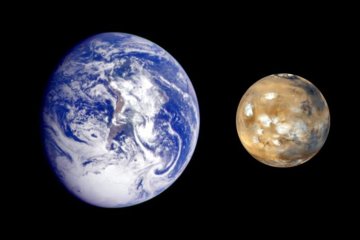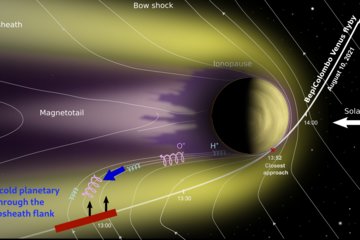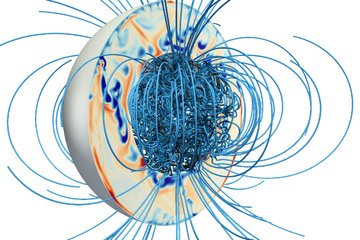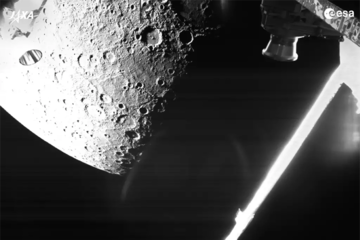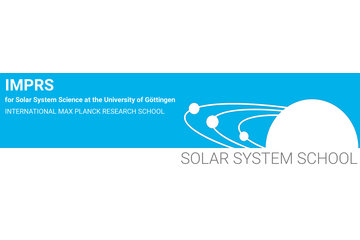Award for MPS Director
Two scientific associations have awarded Prof. Dr. Thorsten Kleine the title "Geochemistry Fellow" for his contributions to the understanding of how the Solar System was formed.
The US-based Geochemical Society and the European Association of Geochemistry have awarded Prof. Dr. Thorsten Kleine, Director at the Max Planck Institute for Solar System Research (MPS) in Göttingen (Germany), the title “Geochemistry Fellow”. The two scientific societies are thus honoring the Göttingen researcher’s pioneering research findings on the formation and early development of the Solar System. In his work, Thorsten Kleine focuses on isotope analyses of meteorites and other extraterrestrial rock samples. In studies of this kind, these cosmic samples reveal information about their place of origin, their further development and their age - and thus help us to understand how our cosmic home came to be.

The beginnings of the Solar System date back more than 4.5 billion years. A disk of dust orbited the still young Sun and formed the building material from which gradually larger and larger chunks agglomerated, eventually forming asteroids, comets, and planets. While some researchers try to recreate this development in elaborate computer simulations, Prof. Dr. Thorsten Kleine investigates samples that “witnessed” these events first hand: meteorites, terrestrial and lunar rock samples as well as samples from asteroids.
In high-precision laboratory tests, the researcher determines the isotope ratios of various metals such as iron, zinc, titanium, tungsten, and molybdenum in the rock samples. Scientists refer to different varieties of the same element as isotopes. They differ only in the number of neutrons in the atomic nucleus - and therefore in their weight. In the early Solar System, these isotopes were not evenly distributed, but were more enriched in some areas than in others. The exact ratio of certain isotopes in a rock sample can therefore provide information about its place of origin. Impacts from other bodies, the formation of an inner layered structure of metallic core and rocky mantle as well as "relocations" within the Solar System are also reflected in the isotope ratios. And as some of the studied isotopes are radioactive and decay over time, they also reveal the age of the sample.
Through investigations of this kind, Prof. Dr. Thorsten Kleine was, for example, able to locate the origin of the building blocks of Earth and Mars: the majority come from the inner Solar System. This disproves a common theory according to which both planets (as well as their inner neighbors Mercury and Venus) grew to their current size primarily through the accumulation of dust clumps from the outer Solar System. The analyses of the Göttingen scientist suggest that our planet may have "assimilated" the terrestrial water during its main growth phase. Significantly later impacts of comets or asteroids are therefore not necessary to explain the terrestrial water deposits.
Prof. Dr. Thorsten Kleine also focuses on development of asteroids, the vast majority of which today orbit in the asteroid belt between the orbits of Mars and Jupiter and are considered the parent bodies of most meteorites. He was able to show that in the early Solar System, two spatially separate populations of asteroids initially formed: one in today's asteroid belt and one in the vicinity of today's Jupiter and Saturn. Only the further growth of the still young Jupiter brought the two groups together. The Max Planck Director hopes to gain further insights from samples from asteroid Ryugu, which the Japanese space probe Hayabusa 2 brought to Earth three years ago. Initial isotope analyses show that Ryugu is an oddity and must have originated far beyond Jupiter. Further samples of the unusual asteroid have already arrived at the MPS and will be examined over the next few months.
Prof. Dr. Thorsten Kleine studied geology, palaeontology, and mineralogy at the University of Münster in Germany where he also completed his doctorate. After an assistant professorship at the Institute of Geochemistry and Petrology at the Swiss Federal Institute of Technology (ETH) in Zurich (Switzerland), he was appointed to the Institute of Planetology at the WWU in 2009. Thorsten Kleine's numerous awards and honors include the F. W. Clarke Medal of the Geochemical Society, the Victor Moritz Goldschmidt Prize of the German Mineralogical Society and the Nier Prize of the Meteoritical Society. Kleine was also elected a member of the North Rhine-Westphalian Academy of Sciences, Humanities, and Arts and is a Fellow of the Meteoritical Society.
The North American Geochemical Society and the European Association of Geochemistry jointly award the honorary title of "Geochemistry Fellow" each year to scientists who have made a significant contribution to the field of geochemistry over several years. This year, a total of 17 researchers were honored with the award.

